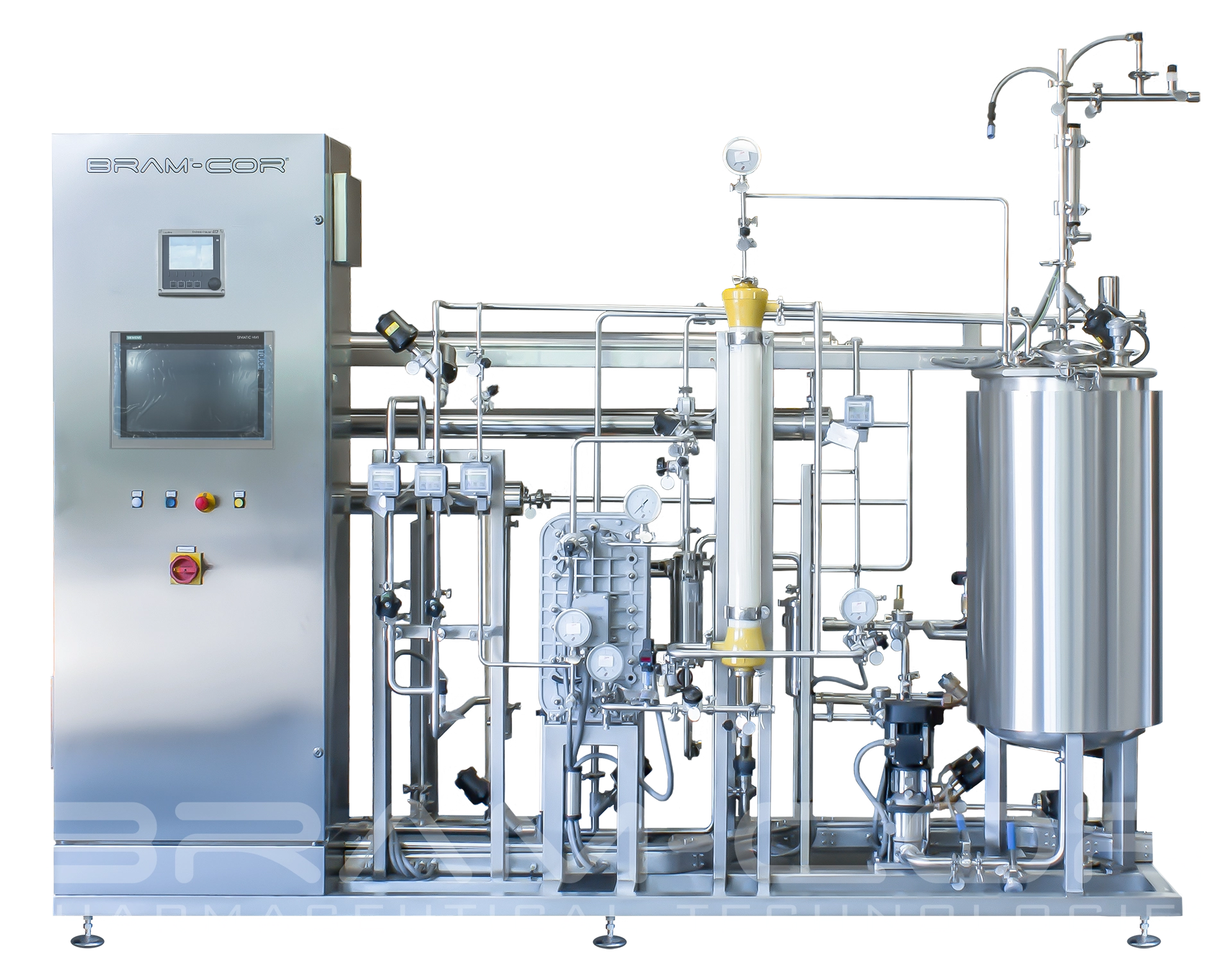MEMBRANE-BASED WFI GENERATION BY RO + UF

PRODUCING “COLD” WATER FOR INJECTION w/ MEMBRANE-BASED RO SYSTEMS
Is there safety in the production of WFI by Reverse Osmosis? BRAM-COR is committed to providing a clear answer to every need of water treatment to produce pharmaceutical waters (i.e. PW or WFI) or at least critical applications (cosmetics, healthcare, human food and animal feed, for example). So, our approach is really focused, with a wide range of specific knowledge.
WFI AND GRADE WATERS WITH REVERSE OSMOSIS
We believe that every pharmaceutical facility needs “pure” water. First of all, the question is: what this word, “pure”, means? In order to answer this question, it is necessary to go back to the source and analyse the quality of the water in-situ (the raw water used), which varies greatly from place to place. Then, the task of the pre-treatment of water is just that: bring the particular water to a functional quality, according to the user requirements specification (URS).
Subsequently, the quality of the water must meet the required pharmacopoeia quality levels if it is to be used, for example, in the production of water for injection (infusion bags or bottles, etc.).
Water treatment systems are designed to ensure a consistent quality of water production, including through physical systems such as reverse osmosis. However, the production of WFI from reverse osmosis systems requires special attention, as in RO there is no change in the state of the water (from liquid to vapour, a natural microbiological barrier).

“Cold” Membrane-WFI from RO requires Ultrafiltration (UF)
In WFI production, unklike distillation, the RO system requires a proper downstream unit to prevent contaminations: the ultrafiltration (UF). This is the only know system that allows process validation. Naturally, it must be done a continuous control on RO efficiency, in terms of membrane degradation, biofilm prevention and microbial charges, with periodic sanitization. If there are no obstacles in ensuring this constant monitoring, the reverse osmosis system can offer a real advantage, reducing the energy needs and thus reducing production costs.
RO and Water Pretreatment Systems
As mentioned above, any pharmaceutical water pretreatment system must be customized after a thorough evaluation of feedwater quality using the customer’s water analysis. The raw water must be pre-treated to remove contaminants (such as particulates, calcium and magnesium salts, heavy metals, organics and bacteria) through a multiplicity of different steps (they can include softeners, UV reactors, deionizers, …)
Chemical dosing stations are added for many purposes such as water disinfection and/or chlorine neutralization. Pre-treated water quality is constantly monitored to ensure suitability to feed downstream water treatment equipments, such as the RO units to produce WFI.
BRAM-COR performs accurate simulations starting from raw water data to design and tailor the best suitable Pretreatment Plants for any specific condition. For an effective microbial control strategy to prevent biofilm formation and fight against severe contaminations by pseudomonas aeruginosa, BRAM-COR designs and supplies hot water sanitizable versions.
Further information about BRAM-COR Sanitary Reverse Osmosis systems: pharmaceutical-reverse-osmosis-systems.com
You can enlarge and/or rotate the 3D image
USEFUL LINKS & SYSTEMS KNOWLEDGE
Main site: bram-cor.com
To view Bram-Cor Equipment catalogue
To view where Bram-Cor Equipment works
About pharmaceutical water treatment systems:
multiple-effect-water-distiller.com
vapor-compression-distiller.com
pharmaceutical-reverse-osmosis-systems.com
pure-steam-generator.com
About pharmaceutical process systems and turnkey plants:
bram-cor-pharmaprocessing.com
ivfluids-parenteralsolutions.com
pharmaceutical-turnkey.com
© 2025 BRAM-COR SPA – VIA MERCALLI 12/A – 43122 PARMA – ITALY – P.IVA 01699350342